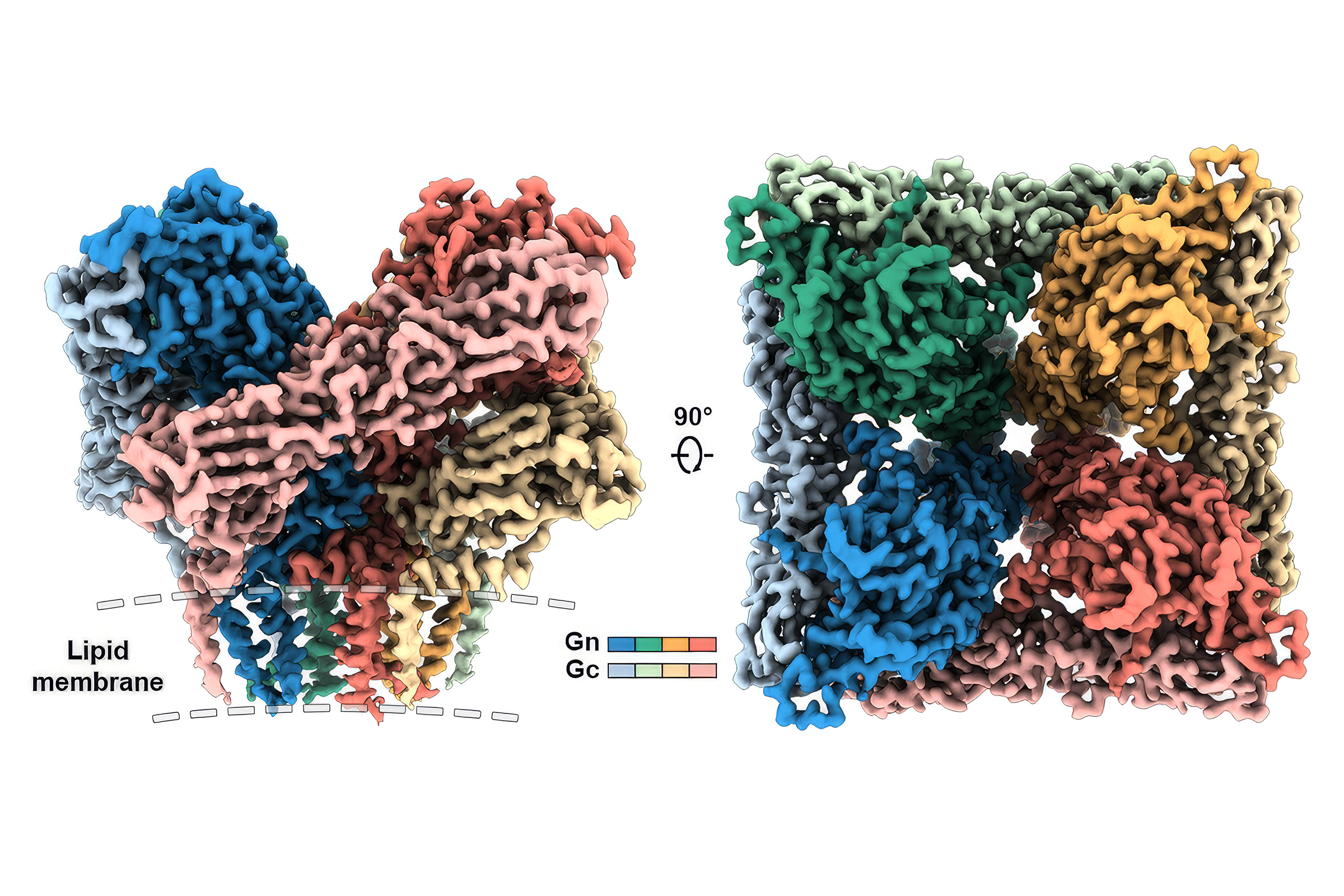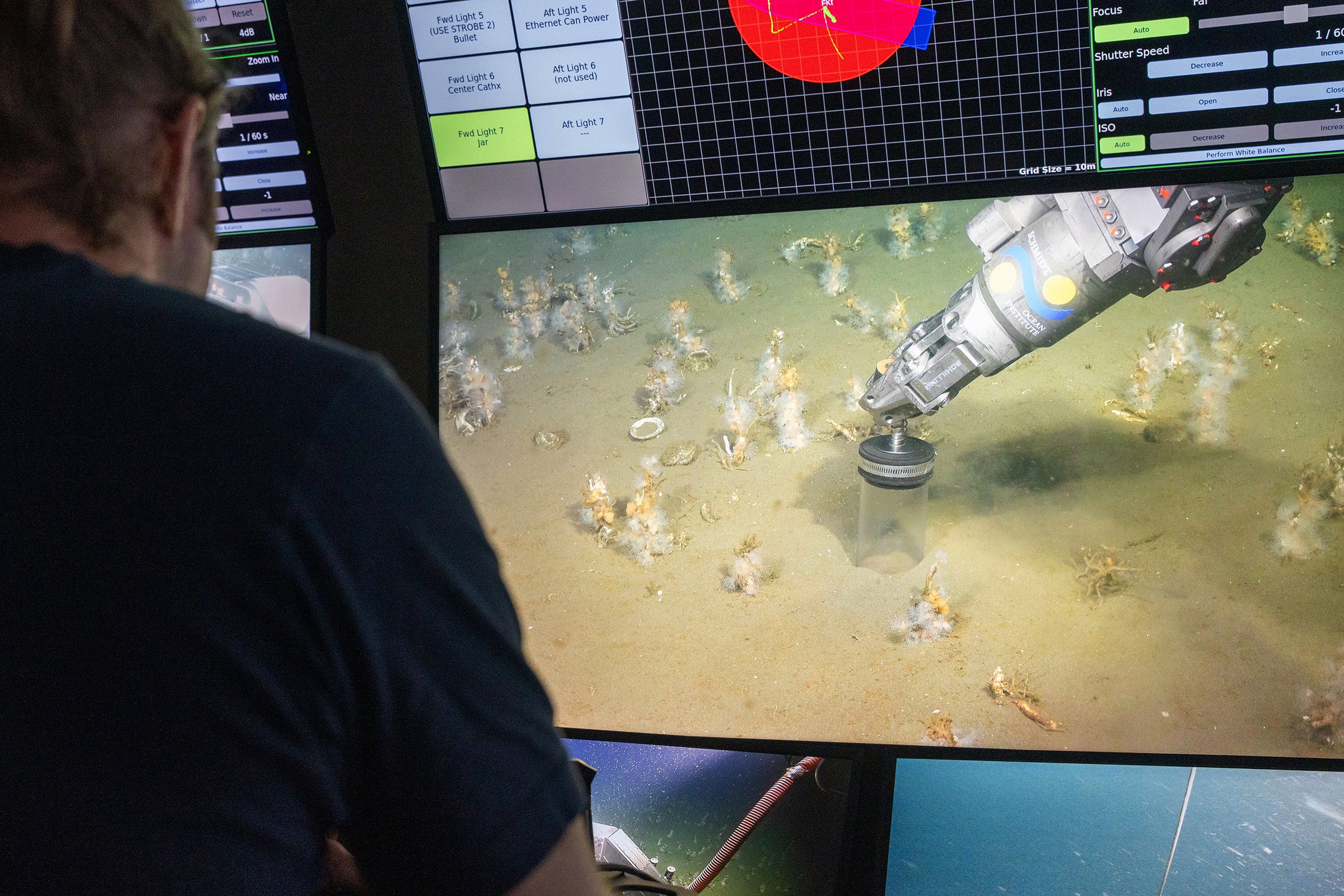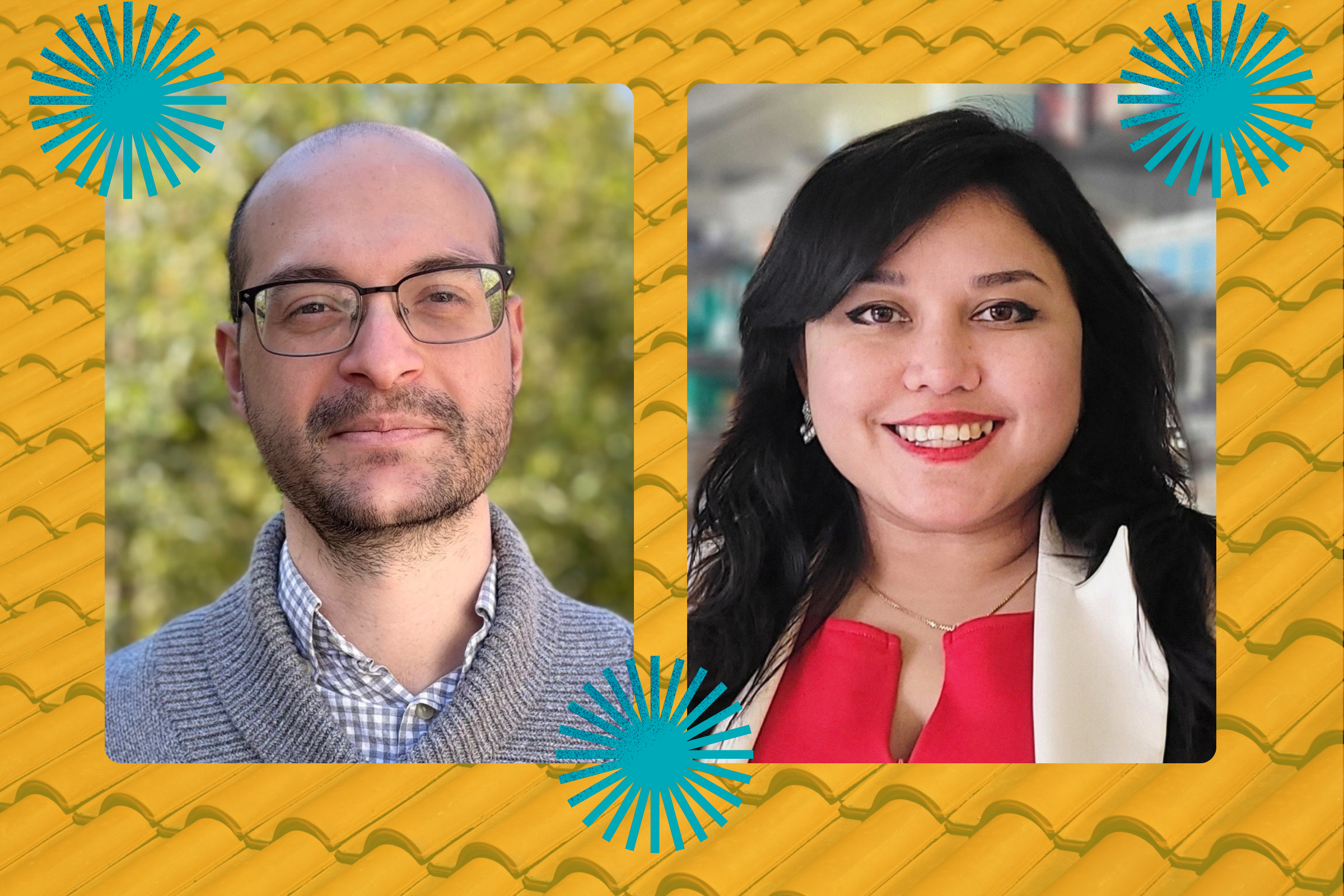Of Fruit Flies, Nobel Prizes and Genetic Discoveries that Change the World
Last year, University of Texas at Austin alumnus Michael Young won the Nobel Prize in Physiology or Medicine for discovering the molecular mechanism behind circadian rhythms.

Circadian clocks are critical for the health of all living things, acting as the internal timekeepers in plants and animals that help to synchronize functions like eating and sleeping with our planet's daily rhythm of light and dark. In today's episode, Young reveals the series of lucky events that launched him into the forefront of circadian rhythm research, what's really going on in your body when you experience jet lag and how insights from the lowly fruit fly might now help millions of people with sleep disorders.
TRANSCRIPT
MA: This is Point of Discovery. Last year, University of Texas at Austin alumnus Michael Young won the Nobel prize for discovering the molecular mechanism behind circadian rhythms. Circadian clocks are critical for the health of all living things, acting as the internal timekeepers in plants and animals that help to synchronize functions like eating and sleeping with our planet's daily rhythm of light and dark.
MA: The roots of the discovery that won him science's biggest prize go back decades to when he was a graduate student at the University of Texas at Austin, studying fruit flies. Back then, Young was exploring how many genes are in the fruit fly's genome. This was basic research.
MY We were trying to get an idea of how many genes the animal had. And it could have had 5,000 genes or it could have had 100,000 genes.
MA: He wasn't looking to cure a disease or anything. But then that's how science often works. Beginning with a question that may strike many as "inside baseball," researchers can arrive at a place that helps millions of people around the world, including those with sleep disorders.
MY: There aren't any quick wins in science, so you can't skip over the basic findings. You can for a while, but then you'll just burn up everything that you've got stored away in the cupboard and then the cupboard is bare and then you'll have to look somewhere else.
MA: Here is how Michael Young first started filling this particular cupboard: To begin to tackle the problem of how many genes were in this insect, he tried to count the genes in one small region of the genome, data he believed he could use to extrapolate up to the whole genetic map for the fruit fly. A paper by some scientists at the California Institute of Technology captured his attention at about the same time. It referred to mutations in fruit fly genes that could affect the insects' circadian clocks. Young's own experiments helped him locate precisely where those genes sat in the fruit-fly genome. Miraculously, it fell right in that same small region of the genome that he was already studying.
MY: There were several very lucky events. One, that I was at Texas, happened to be in graduate school working with that lab on this region of the chromosome, so that I would even be aware that I could have tools that would help me locate and recover that gene. So it's a whole series of lucky events that you'd never reproduce. It's like evolutionary biology -- full of chance and accident.
MA: So lightning struck for you?
MY: Lightning struck multiple times (laughing). Yeah.
MA: The young scientist began exploring what controls sleep and wakefulness in fruit flies. Over time, he and others would eventually piece together how the fruit fly's circadian rhythm works. They found about a dozen genes that turn on and off throughout the 24-hour day-night cycle – some in response to light – creating the tick-tock of an internal clock. And these internal clocks weren't just in flies. They were in most animals. Our bodies—apparently so much more sophisticated than those of the lowly fruit fly—have essentially the same molecular clocks.
MY: So, in humans, these genes are active in our brain and control things like our sleep/wake cycles, but they're also present in our liver and control the way our metabolic pathways run in a temporal fashion.
MA: The clocks were responsible for much more than sleep—they were involved in how the body processes food, regulates temperature, sets its heart rate and other bodily functions. One of the biggest surprises was that the genes are activated throughout the body too.
MY: We expected that gene to be active in the head, in the brain, but we found that it was being made in lots of different tissues. We have these clocks in our skin, we have them in our muscle cells, we have them in the pancreas. Just anywhere you look you find that the tissues have these clocks.
MA: Many human disorders can be traced back to problems with our internal clocks. Research has found that conditions, from weight-gain to infectious-disease resistance, are affected when a person's circadian rhythms get jarred by things like jet lag, artificial light and anything else that pulls our bodies out of sync with nature.
MY: So far it seems like regulation by these clocks in these different tissues touches on almost every major disease system that we know about. For example, we know that there are a number of sleep disorders that have puzzled clinicians for a long time. And one that we have paid a lot of attention to is a disorder that is quite common, it affects about 5 percent of the population, it's called delayed sleep phase disorder.
MA: People with this disorder are true night owls—they stay up late and just can't wake up with the rest of the world. Young found that a specific genetic mutation is responsible for some of these cases.
MY We now have hard and clear information about what the cause of a large component of the sleep disorder is and that has also given us very specific ideas about how to treat that particular sleep disorder.
MA: Young and other scientists have learned about how circadian clocks work not only in disorders, but with healthy bodies adapting to modern life. Take, for example, a person who travels internationally.
MY: All of these little clocks become quite confused but in different ways. So as I go to Korea, over the weekend, one of the first things that happens is that little clocks in my brain will begin to realize that I'm in Korea, that I'm no longer in Texas. But it will take much longer for my liver, and my skin, and my muscle cells to figure out that I'm in a new time zone. And for a while they'll be ignoring what my brain is telling them I am doing, and will be listening, trying to get other signals on their own from the environment. So we now understand jet lag as not being … still stuck back at home on an old schedule, but instead for a period of days we have disagreement among all these clocks, so we are existing in multiple time zones simultaneously.
MA: Young is now a professor at Rockefeller University in New York. Early one morning in October 2017, his telephone rang with a call from Sweden letting him know he was one of the winners of arguably the world's top prize for medicine and physiology. Joining the elite ranks of Nobel Laureates has led Young to think again about the value of not only applied research – searching for specific medical breakthroughs – but basic research, of the sort he did with fruit flies, starting over 40 years ago in Texas.
MY: I think there's a lot of pressure to identify the potential outcomes, the potential applications of research. Which, I think is not a great idea. … You can't just pick and choose an area and say, 'This is going to lead us to the most important applications we can dream up at the time.' All around the world people are realizing the value of basic research for their own economic and technologic advances.
MA: Since winning the Nobel prize last year, some other things have changed for Young, too…
MA: Are you getting more sleep now than you did then?
MY: No I'm getting a lot less sleep. It's been a busy, busy year. But it's been a lot of fun. You do hear from a lot of old friends… A lot of them are in different places across the world, so we've been seeing a lot more plane time, air time. So I've got to watch my jet lag.
MA: Just one final note—Michael Young's Nobel prize was actually the second involving fruit flies and the University of Texas at Austin. In 1946, Hermann Muller won a Nobel prize for his discovery that X-rays can cause mutations in an animal's genome. That discovery allowed future researchers to create genetic mutants, such as those described in that CalTech paper on circadian clocks that first attracted the attention of Michael Young. It all goes back to the humble fruit fly.
MA: Point of Discovery is a production of the University of Texas at Austin's College of Natural Sciences. Our senior producer is Christine Sinatra. I'm your host and producer Marc Airhart. Thanks for listening!



